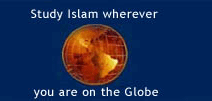|
|
|
|
|
|
Compiled by: Azeem Ayub |
|
|
Reflections |
|||||||||||||||||||||||||||||||||||||||||||||||||||||||||||||||||||||||
|
|
The Key to Successful Marriage
Many of us tend to live in idealism. As marriage partners, we think that a marriage should never be marred by unhappy moments. Marital tensions should never come our way. The husband should always remain the sweetest creature on earth and the wife should always remain thankful to the husband. These are expectations all of us espouse. But the stark truth is bitter and sourer. Husbands are not sweet all the time and wives are not thankful all the time: husbands are dictatorial and bitter and wives unthankful and quarrelsome most of the time. Clashes between the spouses become a routine. Wives at times are so helpless that the only reason for them to put up with their husbands is the children. Those who are not helpless and can become financially independent often take the ultimate step of seeking divorce. Ever than before, today the institution of marriage is on trial and people are questioning the utility of getting married in the first place. To them, it brings more misery, suffering and despair than one can imagine.
What then must be done!
The first step perhaps is to realize the fact that it is next to impossible that a marriage can be clash-free. Even spouses having the same interests and views cannot avoid quarrels and disputes. So first of all a strategy needs to be worked out that can resolve clashes every time they arise. It is the success or failure of this conflict-resolution strategy that can make a heaven or hell of marriage.
Here is a proposed strategy that can perhaps be considered as a starting point.
1. A husband should note down his own mistakes and shortcomings which he genuinely acknowledges as ones that may bother his wife. A wife in return should do the same.
2. A husband and wife should then note down each others’ mistakes and shortcomings not covered in the first list. This would constitute mistakes and shortcomings of one the other does not acknowledge as mistakes and shortcomings.
3. The lists should then be exchanged. Each of the two should now set about correcting the acknowledged mistakes and shortcomings. These mistakes will not go away overnight; however, the will to overcome them means that the job is half done. The next half is to hold oneself responsible each night before going to sleep for every outbreak of that mistake on that particular day and urging oneself to do better the next time.
4. In this regard, once the two know each others’ acknowledged mistakes and shortcomings one thing will happen or in fact should happen: each time there is an outbreak of some mistake, the one responsible for it should thoroughly apologize to the other and in fact ask him or her to give allowance and pray that this does not happen again; this will earn the one committing excess the sympathy of the other.
5. Once work is progressing steadily on this list, the other list should be taken up. Now this list would require some discussion between the two as it constitutes mistakes and shortcomings of a spouse which the other does not acknowledge. If the difference of opinion continues, it is best that both realize that they will keep discussing the differences at opportune moments and at the same time try to put up with one another’s shortcomings with patience and sympathy.
6. Besides the two lists just mentioned, a husband and wife should also make a third list: each should note down the qualities of the other. This list may also be exchanged. This will boost the confidence of both because of acknowledgment of the qualities of one another. One of the greatest reasons for clash and conflict is anger and frustration that may arise in one spouse for the other for various reasons. It is here that the utility of this third list lies. One’s first reaction to the emotions of anger arising within oneself should be to at once remember the qualities of one’s spouse and the benefits drawn from him or her.
These guidelines may help in improving marital ties and in understanding that the best way for peaceful co-existence and earning the respect of a marriage partner is to forgive and forget as far as possible. For this, we should remember that God graciously forgives us and we should in turn graciously forgive our offenders.
Topic URL: http://www.monthly-renaissance.com/issue/content.aspx?id=1359
| |||||||||||||||||||||||||||||||||||||||||||||||||||||||||||||||||||||||
|
In this Issue |
||||||||||||||||||||||||||||||||||||||||||||||||||||||||||||||||||||||||
|
Reflections
|
||||||||||||||||||||||||||||||||||||||||||||||||||||||||||||||||||||||||
|
Read & Reflect
| ||||||||||||||||||||||||||||||||||||||||||||||||||||||||||||||||||||||||
|
Debate & Discuss * Discussion Forum: The Political Directives of Islam | ||||||||||||||||||||||||||||||||||||||||||||||||||||||||||||||||||||||||
|
* General Discussion Forum: Arguments regarding the Existence of God
|
Read and Reflect |
|
Are Muslims a Single Nation
Author Javed Ahmad Ghamidi (Tr. by Tariq Hashmi)
Man has an inherent sense of belonging to a nation defined by common colour, lineage, language, cultural tradition and geographical boundaries. All human beings are children of a single progenitor, Adam. Yet, the feeling for one’s blood relations is not extended to the entire mankind. This also holds true for one’s nation also. For man usually feels and expresses a sense of individuality with reference to not only his person, family, and the near relatives but also to his nation. He always desires to see his person, family, tribe and nation outdo all others in all aspects of life. It is actually this sense of self-identity which is translated into common society where men help each other in all human affairs. The Holy Qur’ān calls this phenomenon ta‘āruf (identity) and clarifies that the tribes and the clans are but a result of this.
Islam perfectly harmonizes its teachings with human nature; it is dīn-i fitrat, a religion matching the nature modeled by God. It recognizes natural urges of humans in this regard too. What it disapproves is conceited nationalist feeling. It disapproves of showing hatred for other nations instead of simply feeling for one’s nation. It targets curbing the tendencies to mark others as inferior and subjugate them, to usurp their rights, and to define one’s nation in terms of superiority and exaltedness and others in terms of lowliness, baseborn and insignificant. All the preceding characteristics of common nationalism are condemned by Islam as criminal ideals. However, Islam does not negate natural feelings for one’s nation. All the foundations of a modern nation usually defined in academic works on political science are acknowledged. Desires of nations to outdo one another in different fields and positive and balanced expression of such an ideal are acceptable. Muslim factions can claim self-identification on the basis of their original nation, demand certain rights as a distinct group, decide to establish their separate state on these very bases.
Seen in this perspective, the view that Islam does not acknowledge the usual foundations of a nation independent of other Muslim nations seems no more tenable. The Qur’ān does not, explicitly or implicitly, state that Muslims are a single nation or they should become one. The book acknowledges the possibility of different nations among the entire body of Muslims. The only thing that the Book stresses is that believers are a single brotherhood (inna mā al-mu’minūn ikhwah, 49:10). Thus according to the Book, Muslims are united by a religious brotherhood. Their unity and bond is not defined by nationalism. They are tied together by the Faith even if separated by dozens of political boundaries and distributed in a number of continents. Therefore, they can be expected, and in fact required, to take care of their religious brotherhood, help them in hard times, rescue them from oppression, prefer them for social and economic relationship, and keep doors open to them in all circumstances. They can, however, never validly be demanded to divorce their birth states, abandon their original national identities and form a single nation under a single Muslim state. The Qur’ān and sunnah allow them not only to form separate states but also to live in a non-Muslim state identifying themselves as part of that nation on the basis of common country, if they can follow the sharī‘ah openly and practice their religion freely.
(Translated by Tariq Mahmood Hashmi from Ghāmidī’s Maqāmāt)
Topic URL: http://www.monthly-renaissance.com/issue/content.aspx?id=1226
|
|
|
Discussion Forum:
Understanding Islamic Political Directives
Siddiq
Bukhary(Moderator)
|
|
|
General Discussion Forum:
aijaz47 Dear Mr. Hanif
Existence does not necessarily have to be physical. As regards Mermaids, their existence is imaginary or fictional. Thus if it has a name it exists.
Secondly, denial does not mean that that particular thing does not exist. One shall have to provide the prove for the denial. Physical existence is an attribute. So far it seems Mermaids do not have that attribute. Their existence is fictional. Can you deny the fictional existence of Mermaids?
Thirdly, Allah is The Creator of Universe and Claims to be so. I have not heard of anyone claiming to be the creator of The Creator. Answer shall be provided when the question arises.
student1 This is your reply to Mr. Hanif but I would like to present my comments on your reply and I hope you wont mind.
quote:
Dear Mr. Hanif
aijaz47
So you agree that
denial does not mean that a particular thing does not exist. Thanks for
accepting my point.
aijaz47
aijaz47
This is in reply to
your question "who created Allah?"
aijaz47 Kindly go to Forums> History of Quran> Collection under Abu Bakar ( may Allah be pleased with him).
Jhangeer Hanif (modeator)
I think you want to
say that existence does not have to be 'actual'. Because we know that
mermaids do not actually exist; they are fictitious in contrast to
reality. We are not taking about the nature of God's existence -
spirirtual or physical; we are talking about whether it is actual or not.
Hence when we talk about mermaids, we know that their existence is not
actual or real. Is this the case with God?
In the second
response, you are again confusing 'actual or real' with 'physical'. I am
not talking about the nature of existence. I am talking about whether
something really exists? Hence the stress is on real. I had written
Comments:
|
Pause
and Ponder |
|
Democracy and Islam
Answer:
There are two basic
aspects of democracy:
see: http://www.studying-islam.org/querytext.aspx?id=983
|
Announcements: |
|
Courses on
Surah Humazah,
Surah
'Asr,
Surah
Takathur,
salam (peace)
One modular course on Surah Humazah, Surah 'Asr, Surah Takathur, Surah Qari'ah, Surah Adiyat and Surah Zilzal has just been launched.
Those interested may register
Regards The Team of Studying Islam
Successful Participants
|
Recent
Additions: |
|
Youtube
Videos
Urdu Articles
English Urdu
QnA
English
Urdu
|
|
|
History of the Qur'an
|
|
|
Please give us your valued feedback on our guestbook:
Studying Islam |

